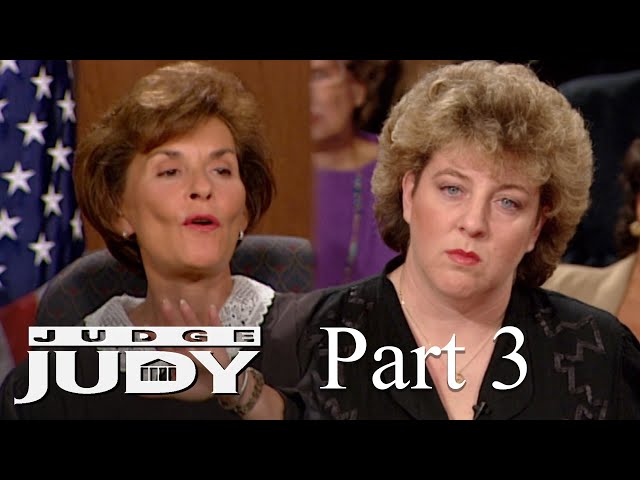What happens when love, disappointment, and suspicion collide in a courtroom? That was the painful reality for one mother, Mrs. Woods, who took the extraordinary step of suing her own 19-year-old son, Brian, over a missing bank card. In this emotional court case, it wasn’t just about money — it was about truth, responsibility, and a young man’s future.
The Allegation: Missing Bank Card
Mrs. Woods filed a lawsuit against her son after discovering $250 withdrawn from her account. She alleged the card was taken from her kitchen counter, and though multiple people had access to the house — including Brian, his younger sister, and grandparents — she firmly believed Brian was responsible.
“I want him to understand that living off of other people or stealing is not a way to live life,” Mrs. Woods told the judge.
Her hope? Not just to get the money back — but to make her son “own up to his responsibility.”
Brian’s Side: Denial and a Difficult Life Path
Brian denied taking the card, stating:
“I didn’t take the card. I had no reason to.”
He admitted to struggling — being laid off, evicted, and living without much — but insisted he was trying to keep himself straight. He acknowledged leaving school early due to personal challenges, saying:
“I had problems with other kids, problems with teachers. I lost interest. My mistake was I left and didn’t go back.”
When pressed by the judge about his life’s direction, Brian’s answers lacked clarity — highlighting a common issue faced by many youth:
“I like the line of work I do when I do. I’ve worked as a construction laborer and in a pallet yard.”
The Judge’s Perspective: Truth and Tough Love
Judge Judy (or a judge in similar style) didn’t mince words. While she sympathized with the mother’s frustration, she highlighted the lack of concrete proof:
“It could have been Brian or his sister. You choose to believe it was Brian because of his lifestyle and history — but that’s not evidence.”
She dismissed the lawsuit, emphasizing that a court cannot operate on suspicion alone.
But the judge went further. She addressed Brian directly — not as a criminal, but as a young man standing at a crossroads:
“You’re 19. You sound intelligent. But you’re going nowhere.”
“You are without direction… You’ll spend 40 years of your life doing something you don’t like unless you change course now.”
A Mother’s Heartbreak, A Son’s Hurt
Though the lawsuit was dismissed, the emotional damage lingered. Mrs. Woods said:
“I still love my son very much. I just want him to take responsibility.”
Brian, visibly hurt, responded:
“It hurts to be accused. I didn’t take the card. I have no use for her money.”
Their final exchange revealed a deep rift:
Mother: “You got away with it this time.”
Brian: “There was nothing to get away with.”
Conclusion: A Case Beyond the Courtroom
This wasn’t just about a missing bank card. This was about a mother’s desperation to reach a son she feels is drifting through life. And a son who may be lost, but insists on his innocence. The courtroom couldn’t find guilt — only a gap between two people who clearly still love each other but are struggling to connect.






